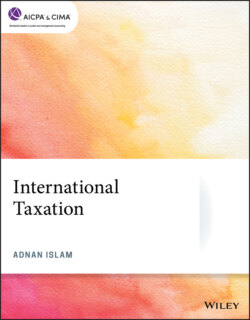Читать книгу International Taxation - Adnan Islam - Страница 33
Foreign Branch Income Taxation — Post-TCJA
ОглавлениеFor U.S. federal income tax purposes, a foreign branch is a division that operates a trade or business in a foreign country and maintains a separate set of books and records. The foreign branch generally is also subject to the income tax laws in the foreign country in which it operates.
The term branch describes a complete, distinct business operation of a U.S. corporation. Although a branch may be separate with respect to function, personnel, or location, it is part of the same U.S. corporation. As before the TCJA, income, deductions, losses, and credits of the foreign branch are considered in calculating the tax liability of the U.S. consolidated group (that is, flow-up). The income of a foreign branch is subject to the 21% corporate tax rate.
Losses of the branch flow into the U.S. consolidated group and reduce taxable income of the group. Dual consolidated loss (DCL) rules, however, provide that such losses cannot be used currently if the losses can also be used by a foreign subsidiary to reduce its income under foreign law.
